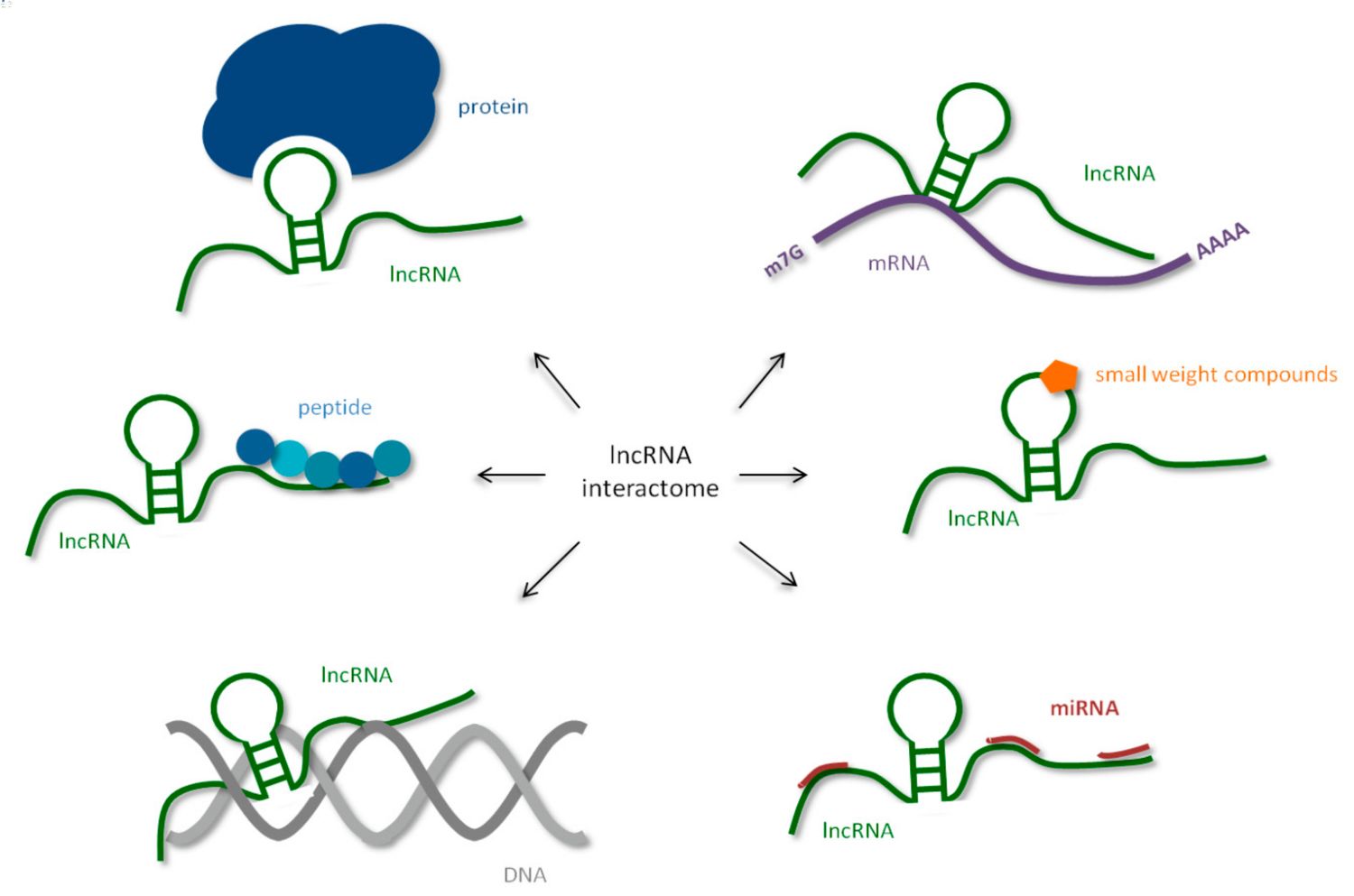
What is lncRNA? Long non-coding RNAs (lncRNAs) are a type of RNA molecule that do not code for proteins but play crucial roles in regulating gene expression. Unlike the well-known messenger RNA (mRNA), which serves as a template for protein synthesis, lncRNAs are involved in various cellular processes such as chromatin remodeling, transcriptional regulation, and post-transcriptional modifications. Why are lncRNAs important? They are essential for maintaining cellular homeostasis and have been linked to numerous diseases, including cancer, neurological disorders, and cardiovascular diseases. Understanding lncRNAs can provide insights into disease mechanisms and potential therapeutic targets. How are lncRNAs studied? Researchers use advanced techniques like RNA sequencing, CRISPR-Cas9 gene editing, and bioinformatics tools to explore the functions and mechanisms of lncRNAs.
What is lncRNA?
Long non-coding RNAs (lncRNAs) are a type of RNA molecule that do not code for proteins. Despite this, they play crucial roles in regulating various biological processes. Let's dive into some fascinating facts about lncRNAs.
- lncRNAs are typically longer than 200 nucleotides.
- Unlike mRNAs, lncRNAs do not translate into proteins.
- They can be found in both the nucleus and cytoplasm of cells.
- lncRNAs can regulate gene expression at multiple levels, including chromatin modification, transcription, and post-transcriptional processing.
- Some lncRNAs act as molecular scaffolds, bringing together different proteins to form functional complexes.
Functions of lncRNA
lncRNAs are involved in a wide range of cellular functions. Here are some key roles they play:
- lncRNAs can influence the structure of chromatin, affecting how genes are expressed.
- They can act as decoys, binding to proteins or other RNAs to prevent them from interacting with their intended targets.
- Some lncRNAs serve as guides, directing proteins to specific locations in the genome.
- lncRNAs can also act as sponges, binding to microRNAs and preventing them from degrading target mRNAs.
- They are involved in the regulation of cell differentiation and development.
lncRNA in Disease
lncRNAs have been implicated in various diseases, making them a hot topic in medical research.
- Abnormal lncRNA expression is linked to cancer progression and metastasis.
- lncRNAs are involved in neurodegenerative diseases like Alzheimer's and Parkinson's.
- They play a role in cardiovascular diseases, including heart failure and atherosclerosis.
- Some lncRNAs are associated with autoimmune diseases such as lupus and rheumatoid arthritis.
- lncRNAs are being explored as potential biomarkers for early disease detection.
lncRNA in Research
Research on lncRNAs is rapidly expanding, revealing new insights into their functions and potential applications.
- High-throughput sequencing technologies have accelerated lncRNA discovery.
- CRISPR-Cas9 is being used to study lncRNA function by knocking out specific lncRNA genes.
- RNA sequencing (RNA-seq) helps identify and quantify lncRNAs in different tissues and conditions.
- Bioinformatics tools are essential for predicting lncRNA secondary structures and interactions.
- lncRNA databases, like LNCipedia and NONCODE, provide valuable resources for researchers.
lncRNA and Evolution
lncRNAs are not just a feature of modern organisms; they have deep evolutionary roots.
- lncRNAs are found in a wide range of species, from plants to animals.
- Some lncRNAs are conserved across different species, indicating important functions.
- They may have played a role in the evolution of complex traits and behaviors.
- lncRNAs can evolve rapidly, leading to species-specific functions.
- Comparative genomics studies help identify conserved and unique lncRNAs across species.
lncRNA and Biotechnology
lncRNAs hold promise for various biotechnological applications, from medicine to agriculture.
- lncRNAs are being explored as therapeutic targets for cancer treatment.
- They could be used to develop new diagnostic tools for early disease detection.
- lncRNA-based therapies are being investigated for neurodegenerative diseases.
- In agriculture, lncRNAs could help improve crop resistance to pests and diseases.
- Synthetic biology approaches are being used to engineer lncRNAs with specific functions.
Future of lncRNA Research
The future of lncRNA research is bright, with many exciting possibilities on the horizon.
- Advances in single-cell RNA sequencing will provide deeper insights into lncRNA functions.
- Integrating lncRNA data with other omics data will enhance our understanding of complex biological systems.
- lncRNA research could lead to the development of personalized medicine approaches, tailoring treatments based on individual lncRNA profiles.
The Power of lncRNA
lncRNA, or long non-coding RNA, is a game-changer in the world of genetics. These molecules, once thought to be "junk," play crucial roles in regulating gene expression, influencing everything from development to disease. They can act as signals, guides, or scaffolds, impacting how cells function and respond to their environment.
Research into lncRNA is still in its early stages, but the potential is enormous. Scientists are uncovering how lncRNAs contribute to cancer, neurological disorders, and other conditions. Understanding these molecules better could lead to new treatments and therapies.
lncRNA isn't just a scientific curiosity; it's a key piece of the genetic puzzle. As we learn more, the possibilities for medical advancements grow. Keep an eye on this exciting field—it's set to revolutionize our understanding of biology and medicine.
Was this page helpful?
Our commitment to delivering trustworthy and engaging content is at the heart of what we do. Each fact on our site is contributed by real users like you, bringing a wealth of diverse insights and information. To ensure the highest standards of accuracy and reliability, our dedicated editors meticulously review each submission. This process guarantees that the facts we share are not only fascinating but also credible. Trust in our commitment to quality and authenticity as you explore and learn with us.
